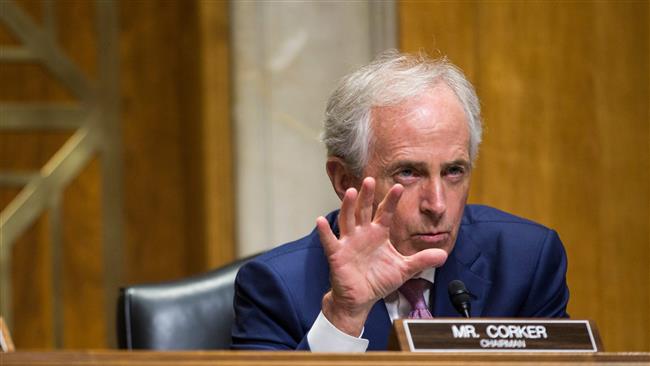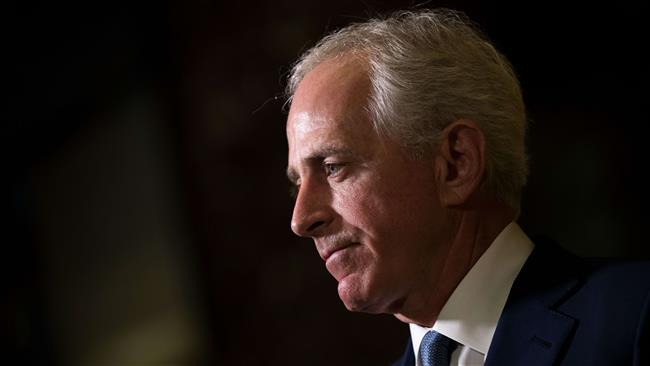Progress being made on bill to ‘fix’ Iran nuclear deal: US Senator
US Senate Foreign Relations Committee Chairman Bob Corker says that progress is being made with Democratic lawmakers in Congress, as well as European allies, on legislation to “fix” the Iran nuclear deal without violating its terms.
“We’ve gotten to a really good place; now the question is can we get there fully,” Corker told reporters on Tuesday.
Trump must decide by January 12 whether he will re-certify the Iran nuclear deal, known as the Joint Comprehensive Plan of Action (JCPOA) reached between Iran and the P5+1 group of countries, including the United States.
Trump has called the agreement an “embarrassment” to the US and “the worst deal ever negotiated.”
Trump will also have to decide whether to continue waiving sanctions lifted as part of the deal. Failure to continue waiving sanctions would likely be seen by Iran as a violation, leading to the agreement’s death.
Consequences of Iran deal on Korea negotiations
Corker also warned that withdrawing from the nuclear deal could have consequences for the ongoing crisis with North Korea.
“I hope at some point we’re going to enter into a very binding agreement with North Korea, and if it’s believed that we withdrew from a military agreement when there aren’t material violations — there’s some technical violations, but not material violations — then it makes it more difficult for people to believe we’re going to abide by another agreement,” Corker said.
Democratic lawmakers and other supporters of the Iran deal have argued for months that scrapping the nuclear accord could imperil any diplomatic effort with North Korea by showing the United States cannot be trusted to keep its deals.
White House meeting on Iran deal
Corker and Democratic Senator Ben Cardin visited the White House last week to discuss the issue with US National Security Adviser H.R. McMaster.
One option under discussion is the possibility of removing the requirement that the US president certify Iran’s compliance, something Trump loathes to do every three months. Another possibility, officials said, would be changing the law so that the certification would occur far less often.
The negotiations could only result in face-saving measures that would allow the Trump administration to stay in the nuclear deal, rather than imposing any new restrictions on Iran.
Early last month, EU foreign policy chief Federica Mogherini warned US Secretary of State Rex Tillerson of the adverse consequences of a possible move to step away from the nuclear deal.
"I have reaffirmed the European Union view that continued implementation of the Iran nuclear deal is a key strategic priority for European security but also for regional and global security," she said after a meeting with Tillerson in Brussels.
The International Atomic Energy Agency (IAEA) has repeatedly verified Iran’s adherence to the terms of the Joint Comprehensive Plan of Action (JCPOA) since January 2016, when the deal took effect.
VIDEO | Iran-Syria: For Resistance
Qassam Brigades claims killing 3 Israeli troops in northern Gaza
More alive than ever: Sayyed Hassan Nasrallah's legacy grows stronger in martyrdom
Occupation of Syria’s highest peak Mount Hermon part of ‘Greater Israel’ project
Iran: Syrian people will decide their future without foreign interference
IRGC says Iran’s power exceeds borders, warns enemies to adjust themselves
Dozens detained, several wounded in Israeli raids in West Bank
‘Ethnic cleansing’: Hamas blasts Israeli attacks on Gaza hospital amid intl. silence














 This makes it easy to access the Press TV website
This makes it easy to access the Press TV website